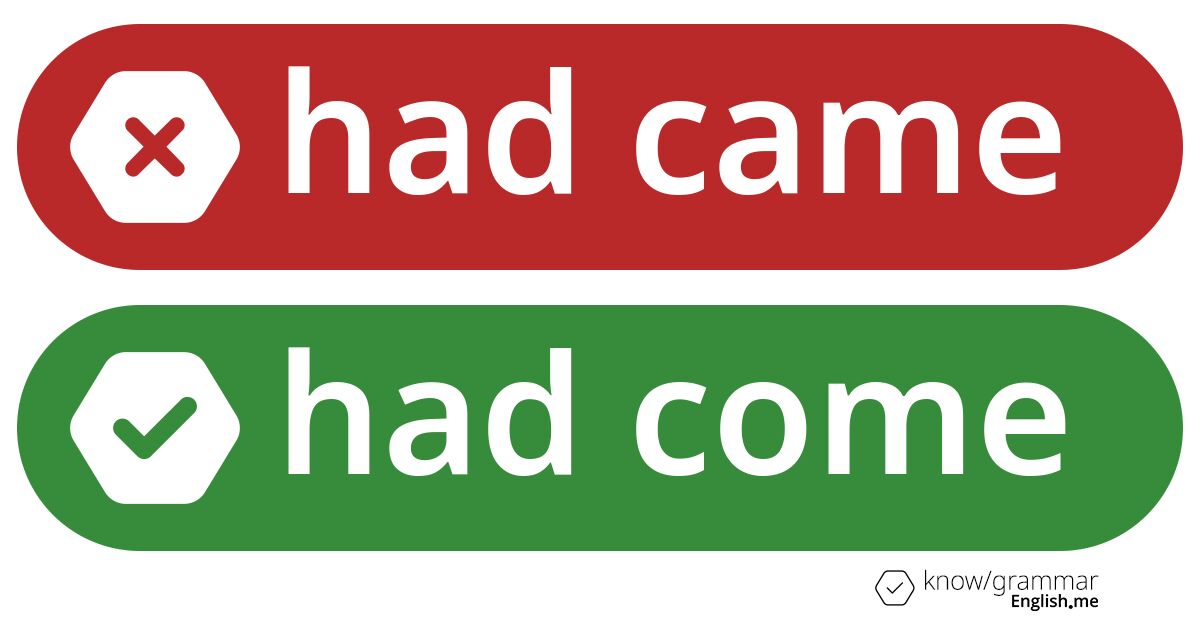Why "had came" misses the mark: a grammar guide
Reviewed and edited by  Anwar Kareem 01/10/2024, 06:44
Anwar Kareem 01/10/2024, 06:44
English.me team member
 What kind of error is it?
What kind of error is it?

It is a grammatical error involving incorrect verb tense usage.
 Why do people make this mistake?
Why do people make this mistake?
People often make this mistake because they confuse "had came" with the similar past perfect construction "had come", mistakenly applying regular past tense rules to irregular verbs.
 What is correct?
What is correct?
"Had come" is correct because "come" is the past participle of the irregular verb "come". The past perfect tense is formed with "had" followed by the past participle.
 Examples of correct usage
Examples of correct usage
- She had come to visit before it started raining.
- By the time the meeting began, everyone had come to an agreement.
- I didn’t realize she had already come and gone.

 English
English español
español française
française italiano
italiano deutsche
deutsche 日本語
日本語 polski
polski česky
česky svenska
svenska Türkçe
Türkçe Nederlands
Nederlands